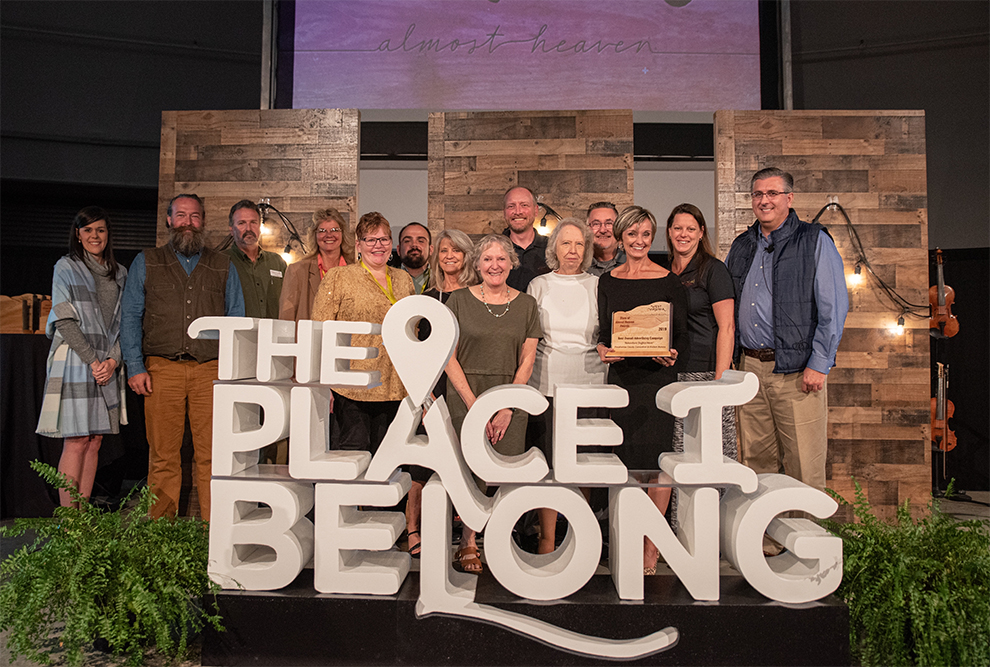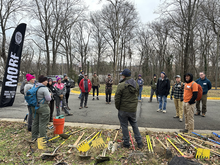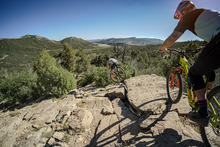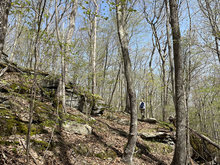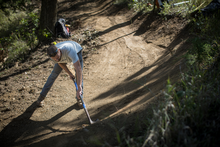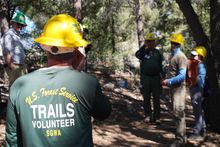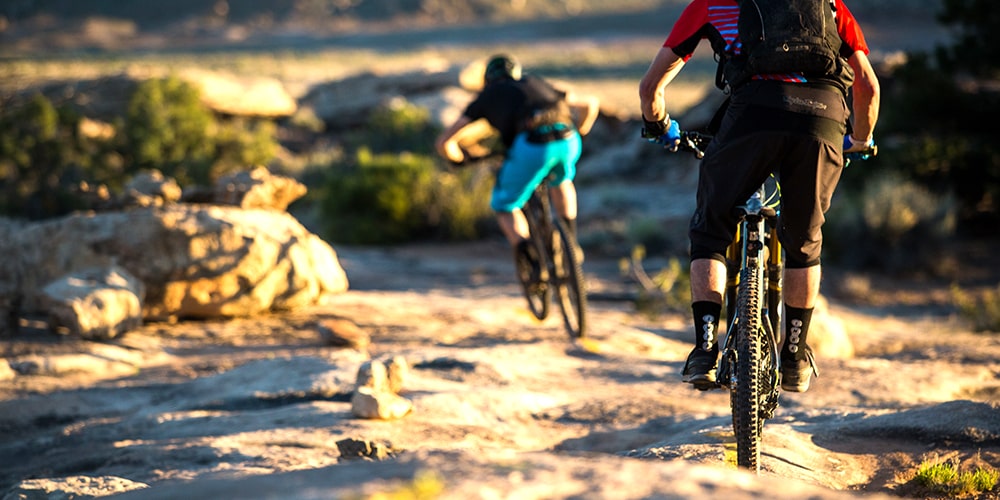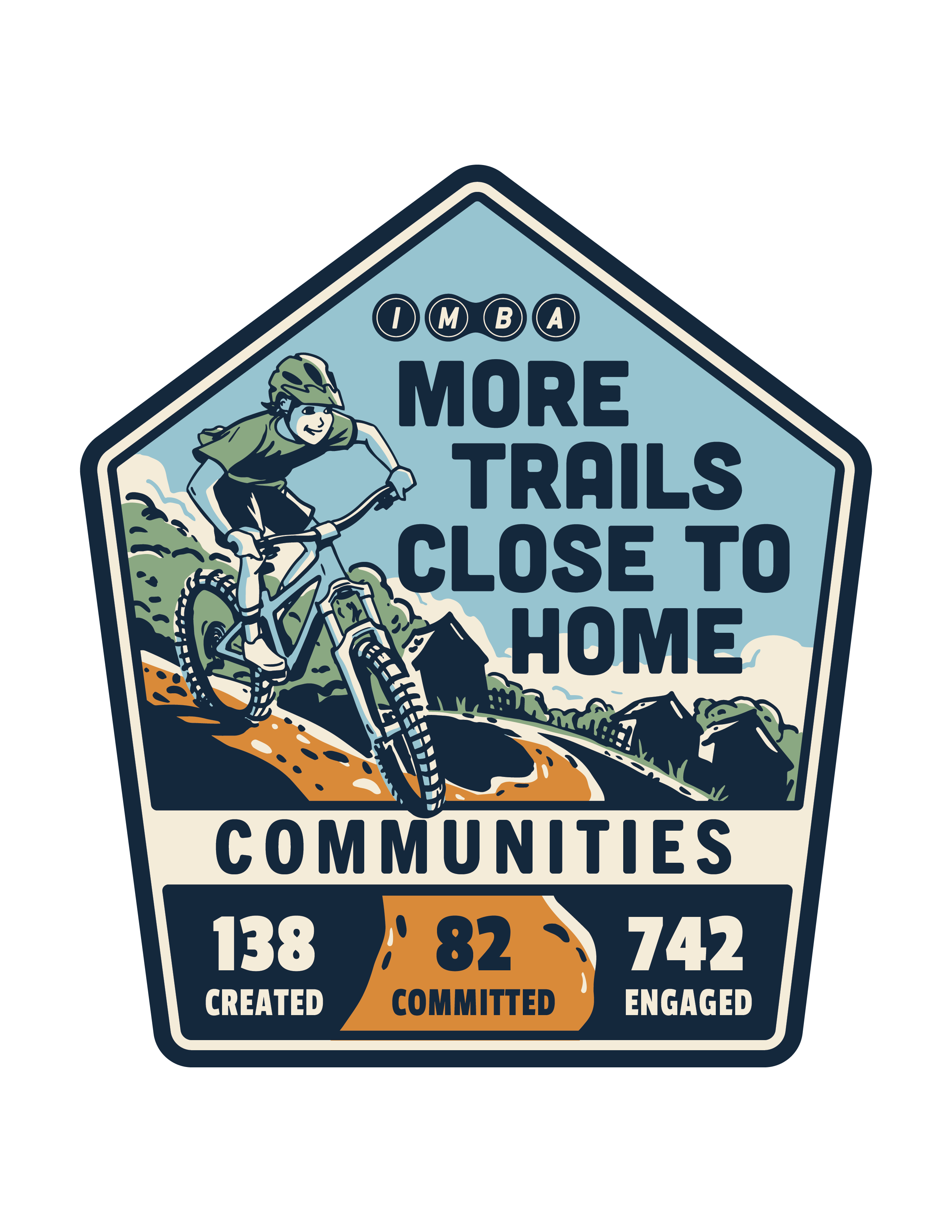Why 20 Volunteers Traded a Snow Day for a School Day
What is the definition of a trail champion? These select few are leaders in their community who have bestowed their knowledge, influence, and passion into building the best local trails.
We are celebrating these trail champions through a Q&A style blog series. These local leaders have been nominated by members of their communities and have agreed to share insights into their success.
Meet trail champion Cara Rose from the Pocahontas County Convention and Visitors Bureau in West Virginia.
Name: Cara Rose
Title: Executive Director, Pocahontas County Convention and Visitors Bureau

Q: Tell us about your experience with mountain biking.
I’m probably the most unlikely person to be nominated as a trail champion. I am not a mountain biker – much to most people's surprise. However, I got involved with it because I love the place I live: Pocahontas County, West Virginia.
I work for the Pocahontas Convention and Visitors Bureau, and the CVB office felt like the area was the right place for trail development. The CEO of Snowshoe Mountain Resort planted the seed many years ago that we could become an IMBA Ride Center. We already had a great start in the community, with Snowshoe being well into mountain biking development, so it felt right. And again, while I am not a mountain biker, I enjoy getting out and hiking on the trails. I certainly have developed a passion for all the folks that are mountain bikers and trail builders. I’ve become invested in the whole program.
What partnerships have been most successful for you in creating trails near you?
People always say it’s about location, but in this case, it was about timing. It was the right time to bring up the idea of building trails. So, I reached out to all of the people I thought would be stakeholders in the development of mountain biking beyond Snowshoe. Everybody immediately jumped on board. Our local IMBA chapter, Pocahontas Trails, Snowshoe Mountain Resort, and the National Forest district rangers truly understood the importance of working towards a recreational economy. I can’t forget to mention West Virginia University as well. Our partnership with the WVU extension helped connect us to planning resources which was beyond helpful.
At about the same time, the National Forest Service was working on a new initiative called Mon Forest Towns, a private project in which the national forest helps to build a recreational economy throughout the Mon Forest, in the communities that are inside the boundaries of the national forest. The mayor of the town of Marlinton, Sam Felton, also immediately recognized how important these trails could be for the town of Marlinton. All of these people and groups have worked very well together to make strides in this project. So far we have been very successful.

What advice do you have for communities that want to see more trails near them?
First, whoever is going to be leading the charge really does need to have a good presence in the community. It’s about building not only partnerships with your stakeholders, which are key, but you also have to build a really strong support from the community. For me, it all started with an email being sent out. Immediately, that got people talking. We started having regular meetings every couple of weeks and built out a strong plan. No matter how many trails a community already has or if they have none it is so important to have a plan. It is also important when looking for stakeholders, to never discredit anybody. Invite anyone you think can bring something to the table, whether it's a land manager, a private entity, or just an individual. Make sure you find people who have something to offer and utilize those skills that they have, because that certainly paid off for us. So again, make sure you have a really good relationship with all different groups and people so that you can begin learning how to leverage everything that is going on.
How did you go about energizing the community as a whole when it came to building these trails?
The local IMBA chapter, Pocahontas Trails, was already very active and those individuals have been very supportive in guiding the trail vision throughout the local community. In terms of spreading the word to small towns in the county, it was all about outreach. Making sure the news got out, whether it be through the radio or the local newspaper. It is also a good idea to do outreach in local community clubs; this really gets the news to spread fast. Honestly, a few radio stories that set the scene really helped us with spreading the word and we are very fortunate for that.
We know that trail champions don’t work alone. Who’s on your team for more trails?
The district rangers (the land managers) at Monongahela National Forest, specifically Jack Tribble, were key partners and fully in support of all the work that is going on. Of course, Snowshoe Mountain Resort has been an absolutely wonderful partner –we couldn’t have made all of this happen without them. Not only do they already have many mountain bike trails, a bike park, backcountry land, and lots of knowledge on how to build trails, they also bring in matching funds when we’re talking about looking for resources to apply for grants. I can’t forget to mention IMBA. IMBA made it possible for us to achieve not only our Silver-Level Ride Center designation, but ensured that we were getting everything right.
I can’t forget to mention the Green Bank Observatory. It’s a very unique radio astronomy facility, but they have lots of trails on their property and they’re looking to work cooperatively with our recreational collaborative to build trails that support us reaching Gold-Level Ride Center Status. In the end, it’s a combination of local organizations, the towns, land managers, and private businesses.

